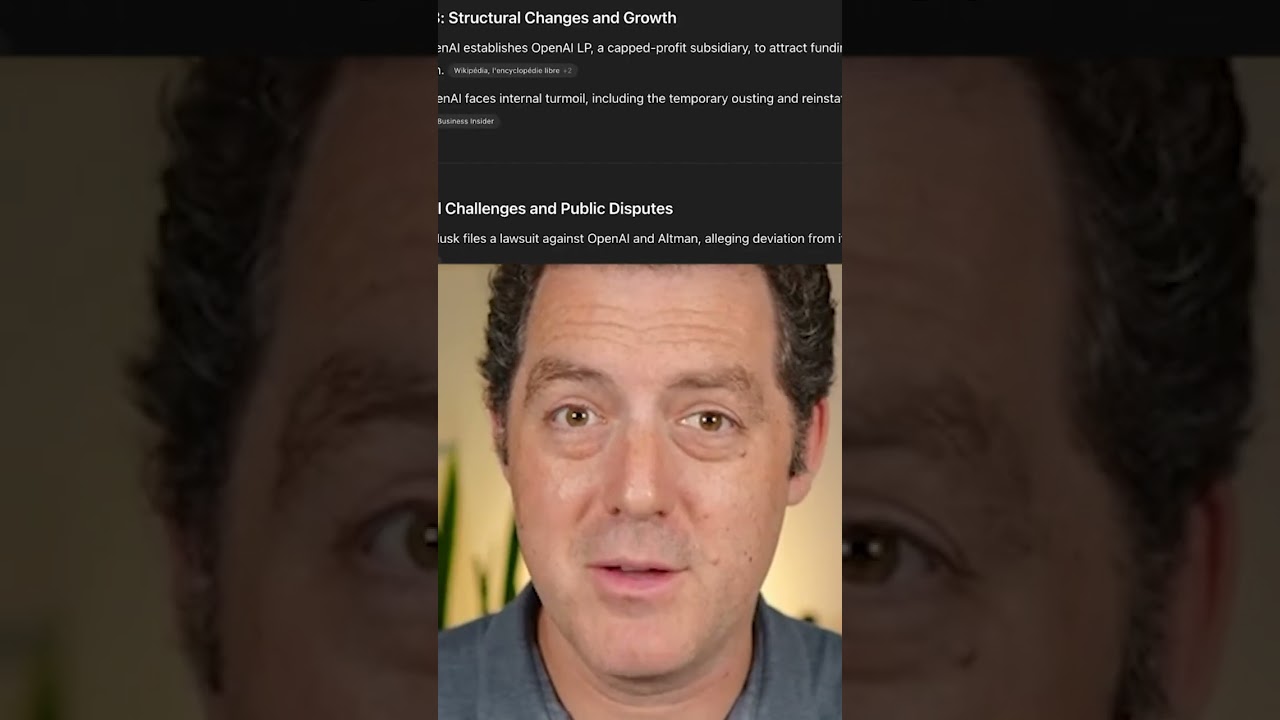The video covers Elon Musk’s criticism and lawsuit against OpenAI over its transition from a nonprofit to a for-profit entity, raising concerns about potential conflicts between profit motives and its original mission to benefit society. It also highlights the history of disagreements between Musk and OpenAI’s leadership, as well as broader debates about transparency and ethics in AI organizations.
The video discusses recent developments involving OpenAI and its plans to transition from a nonprofit to a for-profit entity. OpenAI initially operated as a nonprofit since 2019 but faced pressure from various stakeholders to change its structure. In response, OpenAI announced it would convert into a public benefit corporation, a hybrid structure that balances shareholder interests with its mission-driven goals. This move aims to ensure the organization remains purpose-oriented while allowing it to raise capital more effectively.
Elon Musk, a co-founder of OpenAI and a significant early supporter, has been vocal in criticizing the organization’s direction. Musk, who donated $50 million to the nonprofit, questioned the decision to shift to a for-profit model, suggesting that a traditional for-profit company might be more sustainable in the long run. His concerns reflect broader skepticism about OpenAI’s motives and the potential for profit motives to conflict with its original mission of advancing AI for the public good.
The history between Musk and OpenAI is marked by a falling out in 2017. Musk wanted full control over the organization, including the role of CEO, and sought to make all strategic decisions. However, OpenAI’s leadership, including Sam Altman and Greg Brockman, resisted these demands, preferring to maintain a collaborative and mission-focused approach. This disagreement led to Musk’s departure from the organization and increased tensions between him and OpenAI’s leadership.
Rumors and allegations surfaced suggesting that OpenAI was attempting to convert into a full for-profit company, which further fueled controversy. Elon Musk, who had also founded his own AI company, XAI, accused OpenAI of acting in bad faith. He and others argued that OpenAI was trying to capitalize on the investments made during its nonprofit phase without paying taxes, as nonprofits are exempt from certain taxes and can raise funds more freely. Musk subsequently sued OpenAI, claiming that the organization’s actions were unethical and potentially illegal.
The controversy highlights ongoing debates about the transparency, motives, and governance of AI organizations. Musk’s lawsuit and public criticisms reflect concerns that profit motives could undermine the original mission of AI research for societal benefit. The situation underscores the complex relationship between technological innovation, organizational structure, and ethical considerations in the rapidly evolving AI landscape.
